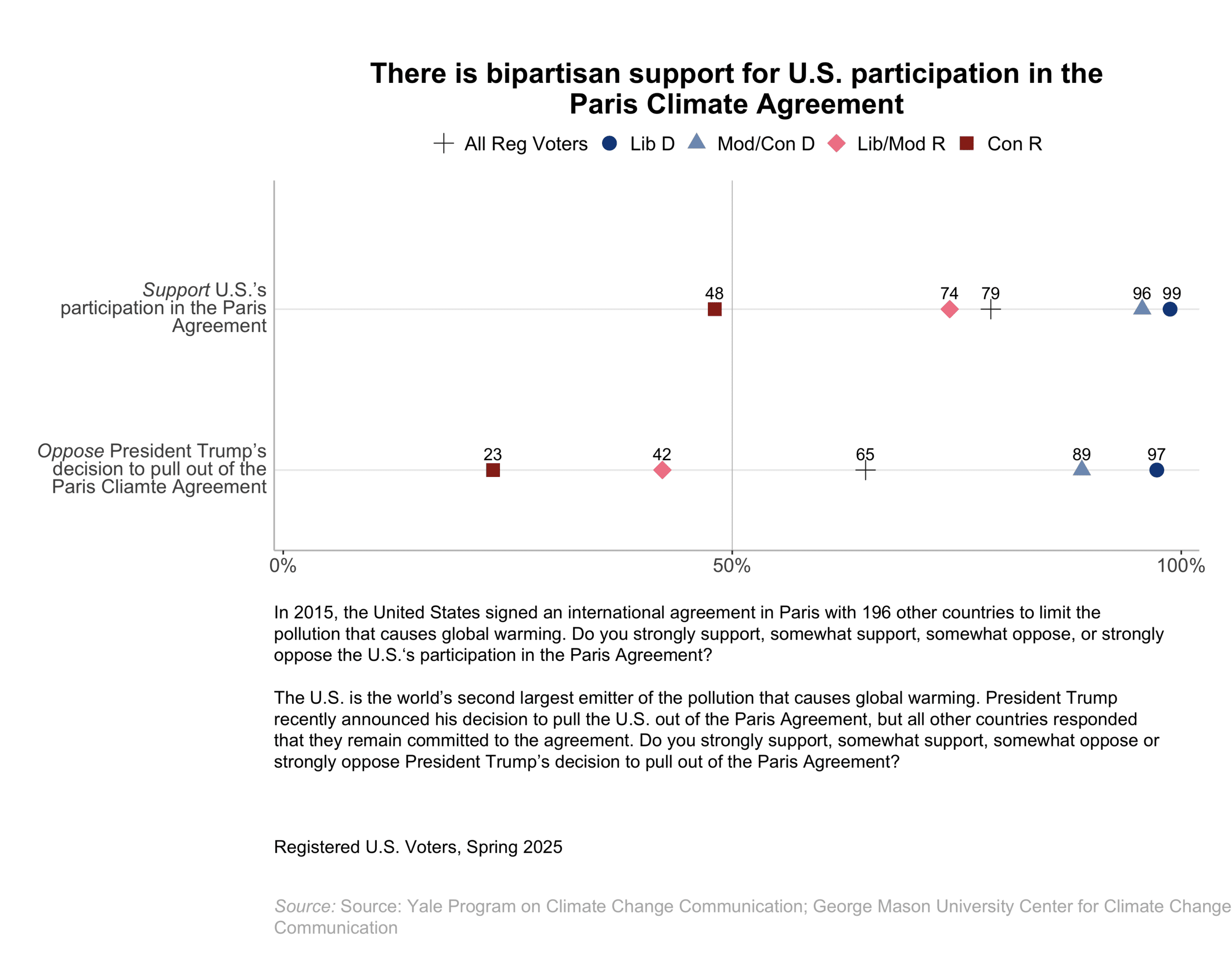Report · Jun 17, 2025
Climate Change in the American Mind: Politics & Policy, Spring 2025
By Anthony Leiserowitz, Edward Maibach, Seth Rosenthal, John Kotcher, Emily Goddard, Jennifer Carman, Marija Verner, Teresa Myers, Joshua Ettinger, Julia Fine, Emily Richards, Matthew Goldberg and Jennifer Marlon
Filed under: Policy & Politics
4. The Paris Climate Agreement
4.1 There is bipartisan support for continued U.S. participation in the Paris Climate Agreement.
In December 2015, officials from 196 countries (nearly every country in the world) met in Paris at the United Nations Climate Change Conference and negotiated a global agreement to limit global warming. On Earth Day, April 2016, the United States and 174 other countries signed the agreement, with all of the other countries soon following suit. However, during President Trump’s first term, the United States withdrew from the agreement. The United States then rejoined the agreement soon after President Biden’s inauguration in 2021. On the day of his second inauguration, January 20, 2025, President Trump signed an executive order to begin withdrawing the United States from the agreement again.
Large majorities of registered voters support U.S. participation in the Paris Climate Agreement (79%) and oppose President Trump’s decision to pull the U.S. out of the Agreement (65%). This includes nearly all liberal Democrats (99% support U.S. participation and 97% oppose the U.S. pulling out) and moderate/conservative Democrats (96% and 89%, respectively). Among liberal/moderate Republicans, 74% support U.S. participation in the Paris Climate Agreement, but only 42% oppose President Trump’s decision to pull the U.S. out. Similarly, 48% of conservative Republicans support U.S. participation, but only 23% oppose President Trump’s decision.
